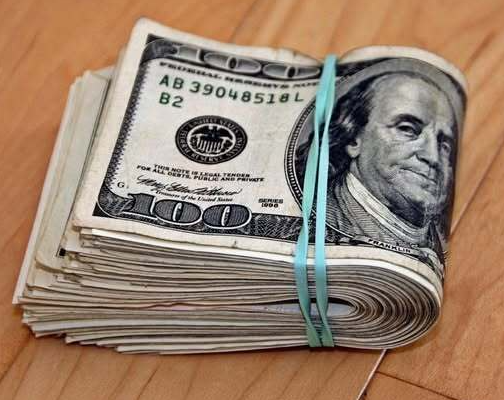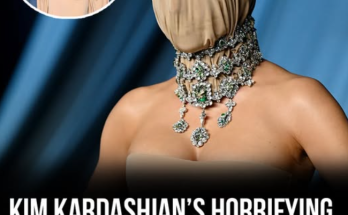 The Locked Toolbox
The Locked Toolbox
When my father passed away last spring, he left behind a small toolbox — dented, dusty, and sealed tight with a heavy lock. It didn’t look like much, sitting there in the corner of his old workshop. My stepmother, Clara, handed it to me a week after the funeral with an oddly forced smile.
“This was his,” she said. “He told me to make sure you got it.”
I turned the box in my hands. It was heavier than I expected, its metal edges worn smooth from years of use. “Do you know what’s inside?” I asked.
She hesitated, then said too quickly, “Just old tools, I think. Maybe junk. I’d just throw it out if I were you.”
But the next day, she called me again. Her tone was tight, like she’d been rehearsing the words. “I’ll give you five thousand dollars if you get rid of that toolbox,” she said.
I froze. “You want to pay me to throw it away?”
“Yes. Just… trust me. It’s better if it’s gone.”
I hung up, my heart pounding. My father had been a quiet, private man — a mechanic who loved old trucks, black coffee, and long drives on back roads. He wasn’t rich, but he valued honesty more than anything. If he’d wanted me to have this toolbox, there was a reason. And if Clara was willing to pay that much money to make it disappear, I knew I had to find out why.
I spent the next day trying to open the lock. My father had always used the same type of padlock, the kind that required a small key he wore on his keychain. I searched every drawer, every pocket of his old jackets, even the truck glove box. Nothing.
Finally, I took the toolbox to a locksmith. The man looked at it, then at me. “Old model,” he said. “Hasn’t been made in decades. Want me to cut it open?”
“Yes,” I said, my voice shaking slightly.
The saw bit through the lock with a shower of sparks. When the lid finally creaked open, I expected to see tools. Instead, inside lay a thick envelope, yellowed with age, and a small, velvet pouch. My stomach turned.
The envelope was addressed in my father’s handwriting:
“For my son, when I’m gone.”
I opened it carefully. Inside were a dozen old photographs, all of my father — younger, smiling, his arm around a woman who was not Clara. They were taken in the early 1980s, before I was born. Behind them was a letter.
“My son,
If you’re reading this, it means I’m no longer there to explain in person. Before I met Clara, I was married once before — to your mother, Emily. You grew up believing she died when you were a baby. That’s what Clara and I told you. But it wasn’t true.
She didn’t die. She left. And I spent years trying to find her.”
My hands trembled as I read. My whole life, I’d believed my mother had passed away. There had been no grave, no photos, no stories — just silence.
The letter continued:
**“When you were five, Clara came into our lives. I was lonely, angry, and desperate to give you a stable home. But Clara never forgave me for still searching for Emily. When she found out I’d hired a private investigator, she told me if I didn’t stop, she’d leave and take you with her. I had to make a choice.
I stopped looking — but I never stopped wondering. In the pouch you’ll find what I discovered years later.”**
My pulse quickened as I untied the velvet pouch. Inside was a folded piece of paper and a silver necklace — a small locket shaped like a heart. I opened it, and inside was a picture of a woman with the same green eyes I saw in the mirror every day. My mother.
The paper was a birth certificate. My birth certificate. But something was different — the mother’s name listed wasn’t “Emily Carter.” It was “Emily Hayes.”
And below that, under “Father,” was not my father’s name.
It read: Michael Hayes.
I felt the world tilt beneath me. My father wasn’t my biological father.
The letter went on, written in the same steady hand:
**“When I learned the truth, it nearly broke me. Your mother had left because she discovered I couldn’t have children. She’d met someone else — Hayes — and by the time you were born, she’d made up her mind to disappear. When she died in an accident years later, I took you in. I loved you like my own, and I never wanted you to doubt that. But Clara always resented you. She knew you weren’t hers, and she feared what you might find if you dug into the past.
That’s why she must never know what’s inside this box. Promise me you’ll decide for yourself what to do with the truth.”**
I sat there for a long time, reading those words again and again. My father — the man who’d raised me, taught me to ride a bike, stayed up nights helping me with school projects — wasn’t my biological father. But in every way that mattered, he was my dad.
When I left the locksmith’s shop, I drove straight to the old lake where my father used to take me fishing. The sun was setting, the water still and golden. I took the locket from my pocket and held it in my palm. I could almost hear his voice saying, “You always have a choice, son.”
That night, Clara called again. “Did you get rid of it?” she asked, her voice tight.
“I opened it,” I said quietly. “And I know why you wanted me not to.”
There was a long silence on the line. Then she whispered, “You should have left it alone.” And hung up.
In the weeks that followed, I met with an attorney and confirmed everything. My mother, Emily Hayes, had indeed died in a car accident years earlier. Michael Hayes, my biological father, had passed away soon after. My dad — the man who’d raised me — had adopted me quietly, changing my name to Carter to give me a chance at a normal life.
Clara had known. The $5,000 offer wasn’t about money; it was about keeping control of a story she’d helped hide.
I didn’t confront her again. Instead, I took the letter, the locket, and the birth certificate, and placed them in a new wooden box I built myself. On the lid, I carved three words:
“Truth, Love, Legacy.”
Every time I look at it, I think of the man who raised me not out of obligation, but out of love. He might not have been my father by blood, but he was the only one who ever deserved the title.

